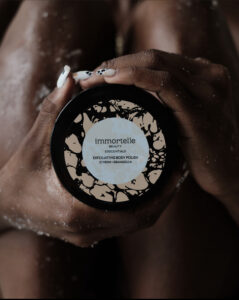Marks a Widened Lane for the Genre in Film

Madea’s Destination Wedding, which premiered on Netflix on July 11, represents a notable moment for Soca music in a major American film. The soundtrack features six Soca tracks, over 15 percent of the total songs in the film, positioning the genre as an integral part of the film’s sonic identity. This is the first time in a contemporary Netflix production that Soca Music has been embedded so prominently in a mainstream release.
The film’s original score was composed by Jongnic “JB” Bontemps, whose Haitian and Jamaican heritage complements his growing Hollywood portfolio, including Transformers: Rise of the Beasts and Creed II. Alongside 14 original score cues, the film includes 22 pre-existing songs, six of which are Soca tracks from Trinidad and Tobago producers and artists. These musical selections are woven into the narrative and setting, which takes place in the Bahamas, rather than serving as mere background for festival scenes.
All placements were coordinated by Blaze Unlimited LLC, a Los Angeles-based company. Blaze Unlimited collaborates with creatives and studios, including Netflix, to curate music from artists who contribute to today’s cultural landscape. Special mention and credit to Darryl Gervais for making the connection and making it happen.
This soundtrack marks the first major American film to feature Soca so visibly, reflecting a deliberate creative choice and signaling the genre’s potentially growing role in cinematic storytelling.
Track Breakdown
“See Meh” by Bunji Garlin
Released in 2018 on the Foli Riddim (produced by Badjohn Republic), this track blends dynamic brass arrangements with lyrics addressing rumors and social scrutiny. Written by Fay-Ann Alvarez and Bunji Garlin, and featuring background vocals by Karyce Phillips alongside a full brass section, the song’s tone aligns with the film’s humor and social dynamics. The production, mixed by Badjohn Republic and mastered by Precision Productions, complements key narrative moments.
Twin Flame Instrumental
Produced by Advokit Productions (Kitwana Israel), this 2018 instrumental underpins scenes without overwhelming dialogue, the instrumental supports the Caribbean ambiance.
“Love It” by Kes
Written by Kees Dieffenthaller, Darryl Gervais, and Kitwana Israel, and released on the Twin Flame Riddim, this track’s lyrics underscore a romantic storyline. Instrumentation includes live guitar, bass, and layered background vocals. Darryl Gervais played a key role in connecting the film’s producers with Soca creators, facilitating this track’s inclusion.
Folklore Instrumental
Produced in 2017 by Advokit Productions, this instrumental demonstrates Soca Music enduring utility beyond vocals. Its placement illustrates how instrumental Soca can enhance visual storytelling.
Read more about how big Folklore is to Soca.
“Grateful” by Dale Ryan
Released in 2022 on the Bongayo Riddim, this track centers on perseverance and gratitude, themes resonant with the film’s focus on family and redemption. Produced and mixed by Advokit Productions, its modest streaming performance does not diminish its narrative relevance.
Island Crush Instrumental
Produced by Advokit Productions, Kitwana Israel in 2015, this instrumental supports the film’s romantic and tropical atmosphere, contributing to the wedding scenes’ tonal foundation.
This soundtrack is a milestone for Soca Music broadly, as well as for the artists, writers, and producers involved, including but not limited to Kes (the Band), Bunji Garlin, Dale Ryan, Darryl Gervais, Fay-Ann Alvarez, Karyce Phillips, Emmanuel Rudder, Gideon Bishop, Kees Dieffenthaller, Jaiso, Jon Dieffenthaller, Riad Boochoon, Badjohn Republic, Kyle Philips, Nathan Maxwell, Irwyn Roach, Ira Storr, Johann Andrews, Anthony O’Conner, Jonnelle Manwaring, Kasey Phillips, Madmen Productions, AdvoKit Productions, Precision Productions, and Kitwana Israel, who produced five of the six featured placements.
By integrating Soca into the film’s emotional and atmospheric elements, rather than confining it to party scenes, Madea’s Destination Wedding illustrates the genre’s versatility in storytelling. It highlights Soca’s relevance beyond the festival and fete, extending into broader entertainment contexts like film and television.
This moment underscores the potential when Caribbean creatives contribute to global content production. As part of the established Madea cinematic universe, the soundtrack gains extended cultural presence, introducing Soca to more and more audiences beyond the Caribbean diaspora.
What began as a set of individual sync placements may provide another model or lane for Soca’s continued presence in global storytelling, beyond the festival stage.
Congratulations to every single artist involved in this effort.
Explore more music below:










